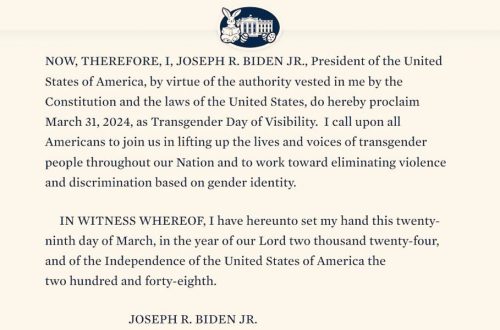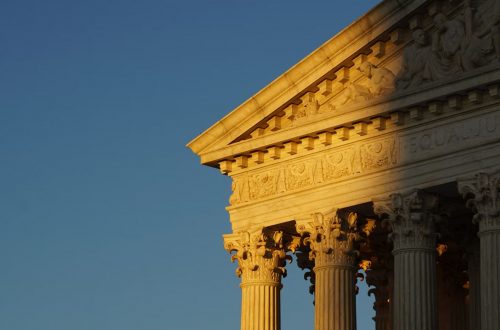I am watching in disbelief as “CNN Presents†narrates a misleading account of how the U.S. entered into the Iraq War. Basically, they are alleging that the President built a case for war based “substantially†on faulty intelligence.
President Bush’s case for pre-emptive war against Iraq was based substantially on evidence that Saddam Hussein was developing weapons of mass destruction. But a presidential commission described the pre-war intelligence as “dead wrong.” CNN Presents pieces together the chain of events that led to the faulty intelligence (source).
Certainly there is no coincidence that this CNN exposé comes out just a few days after the indictment of Scooter Libby. Apparently, CNN likes to coordinate its reporting with the talking points of the opponents of the President’s war policy.
This particular report is troubling not merely because a news magazine has taken a policy position on the Iraq War, but because its opposition is based on a selective and misleading account of events that led up to the war.
Is it true that U. S. intelligence agencies (and every other intelligence on planet earth!) mistakenly held that Saddam Hussein retained stockpiles of WMD? Yes. Is it true that flawed U.S. intelligence estimates were the only justification stated for the war? No.
As a matter of fact, the war came at the end of 12 long years of failed diplomacy and U.N. sanctions. The terms of Saddam’s surrender at the end of the first Gulf War included the requirement that Iraq verify the destruction of all its stockpiles of WMD. Saddam had WMD, had used WMD on his own people, and was being required to demonstrate to the world that he had destroyed all of the WMD that the world knew he had stockpiled.
Of course, Saddam did not comply with these terms and defied a string of U.N. Security Council resolutions throughout the 1990’s. The resolutions culminated in Security Council resolution 486 in 2002 which once again required Saddam to verify the destruction of WMD stockpiles that he still had not accounted for. The resolution said that Iraq would face “serious consequences†if they did not verify the destruction of their unaccounted WMD stockpiles. The members of the U.N. security council (including Syria!) voted unanimously for the resolution. Saddam did not comply with this last resolution. Thus, Saddam Hussein’s Iraq was in violation of U.N. resolutions with or without U.S. intelligence estimates of their WMD programs.
The Bush Administration’s WMD argument for the war had two planks. First, the administration argued that Iraq had failed to verify the destruction of its pre-1990 WMD stockpiles in violation of U.N. Security Council resolutions. Second, the administration argued that it had intelligence that indicated that Iraq was seeking to reconstitute its WMD programs, including is nuclear weapon program. The first plank was a slam dunk. Everyone agreed and still agrees today that Saddam never accounted for all his old WMD stockpiles. In many policy-makers’ opinions, this plank by itself was a sufficient casus belli. The second plank is where the intelligence failures come in—the extent of which we are still not altogether sure about.
This half of the story, CNN has conveniently overlooked. Do not expect any of the mainstream media to give an accurate accounting of what actually happened in the run-up to the war. They have all decided to indulge in a bit of conspiracy-mongering. At the core of all the conspiracy theories is this: Bush wanted to go to war so bad he twisted intelligence in order to make it happen. Any part of the actual story that does not fit that conspiracy-narrative gets really short shrift.




3 Comments
John Rush
Good CounterPost to CNN.
The work of the media is OVERTLY Orwellian.
We must work hard to retain our own memories of what happened.
I have heard various stories that there IS evidence of WMD uncovered in Iraq. There WAS a like between Al Qaeda and Iraq, etc. These never seem to make it to the surface to be verified or falsified.
Still trying to do my own thinking–which leads me to rarely view CNN’s propaganda brigade.
JRush
pwright2
The American people would not have supported the administrations rush to war simply on the first premise.
Denny Burk
Pwright2,
Thanks for the comment. You might be right. However, the debate would then have been do we have to do this now, or should we do this later. The debate would not have been, “Should we do it at all?”
We simply had no way of verifying with any certainty that the weapons were destroyed, and we and the rest of the world could not live with that situation indefinitely. Containment was not a long-term option.
In my view, uncertainty in this regard is an argument for the war, not against.
Denny Burk